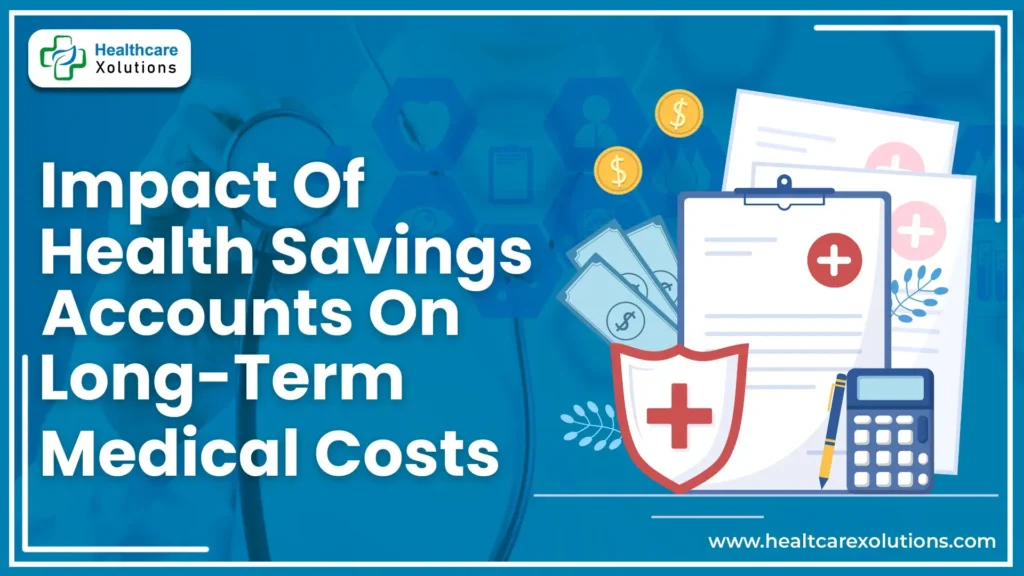The Impact of Health Savings Accounts on Medical Costs | Complete Guide 2025

Rising healthcare costs have prompted individuals to seek smarter ways to manage medical expenses. Health Savings Accounts (HSAs) are emerging as a popular solution, offering a tax-advantaged way to save for both immediate and future healthcare needs. Designed to pair with High-Deductible Health Plans (HDHPs), HSAs provide financial flexibility and significant long-term benefits.
This guide explores how HSAs reduce medical costs and help secure financial stability.
Key Takeaways:
- Triple Tax Advantage: Contributions, earnings, and withdrawals for medical expenses are tax-free.
- Long-Term Growth: HSA funds grow tax-free, benefiting from compounding.
- Retirement Planning: Provides a dedicated pool for healthcare costs after age 65.
- Flexible Spending: Funds can be used for a variety of qualified medical expenses.
- Roll-Over Benefit: Unused funds carry over annually, building a larger reserve over time.
Table of Contents
What Is Health Saving Account?
A Health Savings Account (HSA) is a savings account with tax advantages that allows individuals to save for qualified medical expenses. HSAs must be paired with HDHPs, which have lower premiums but higher deductibles than traditional plans.
Key HSA Benefits:
- Tax-Deductible Contributions: Lower your taxable income.
- Tax-Free Growth: Interest and investment earnings grow tax-free.
- Tax-Free Withdrawals: Use funds for eligible medical expenses without incurring taxes.
These features make HSAs a powerful tool for managing medical costs and enhancing long-term financial planning.
Impact of Health Savings Accounts On Medical Costs Reduction:
- Tax Savings and Compound Growth: Contributions reduce your taxable income, and funds grow tax-free over time, thanks to compounding. Starting contributions early maximizes growth, providing a financial cushion for future healthcare expenses.
- Retirement Planning: HSAs help address substantial healthcare costs in retirement. Unlike Flexible Spending Accounts (FSAs), unused funds roll over yearly, allowing savings to accumulate. These funds reduce the need to tap into other retirement accounts like 401(k)s or IRAs for medical expenses.
- Addressing Rising Healthcare Costs: Healthcare expenses, especially for older adults, can be overwhelming. By contributing to an HSA during your working years, you can prepare for future costs, easing the financial burden.
- Flexibility and Control: HSAs offer freedom in how and when funds are spent. They cover a wide range of expenses, including dental, vision, and preventive care. Funds not immediately needed can remain in the account to grow over time.
- Mitigating High Deductibles and Out-of-Pocket Costs: HDHPs often involve substantial upfront costs. HSAs help offset these expenses, ensuring financial stability while meeting deductibles or covering co-pays.
Challenges Of Health Savings Accounts On Medical Costs:
While HSAs offer substantial benefits, they may not suit everyone:
- HDHP Requirement: Enrollment in an HDHP is mandatory, which may not suit those with chronic health conditions or frequent medical needs.
- Disposable Income Needed: Regular contributions require financial discipline and sufficient disposable income.
- Investment Management: Maximizing benefits involves understanding how to invest and manage HSA funds effectively.
Conclusion:
Health Savings Accounts (HSAs) provide a strategic way to manage immediate and long-term healthcare expenses. With triple tax advantages, compound growth, and flexibility, they are an indispensable tool for those enrolled in HDHPs. Careful planning and regular contributions can turn an HSA into a significant asset for financial stability in retirement and beyond.
For those who qualify, HSAs are not just a healthcare savings tool, they are a cornerstone of long-term financial health.
FAQs:
Can I use my HSA for non-medical expenses?
Yes, but non-medical withdrawals are subject to income tax and a 20% penalty if under age 65. After age 65, withdrawals for non-medical expenses are taxed as income.
Can HSA funds be used for dental and vision care?
Yes, HSA funds cover qualified dental and vision expenses, such as exams, glasses, and braces.
What happens to my HSA if I change health plans or jobs?
HSAs are portable and remain with you regardless of job or health plan changes. You can continue using and contributing as long as you’re enrolled in an HDHP.
Can I open an HSA on my own?
Yes, if you have an HDHP that meets IRS requirements, you can open an HSA independently through banks or financial institutions.
